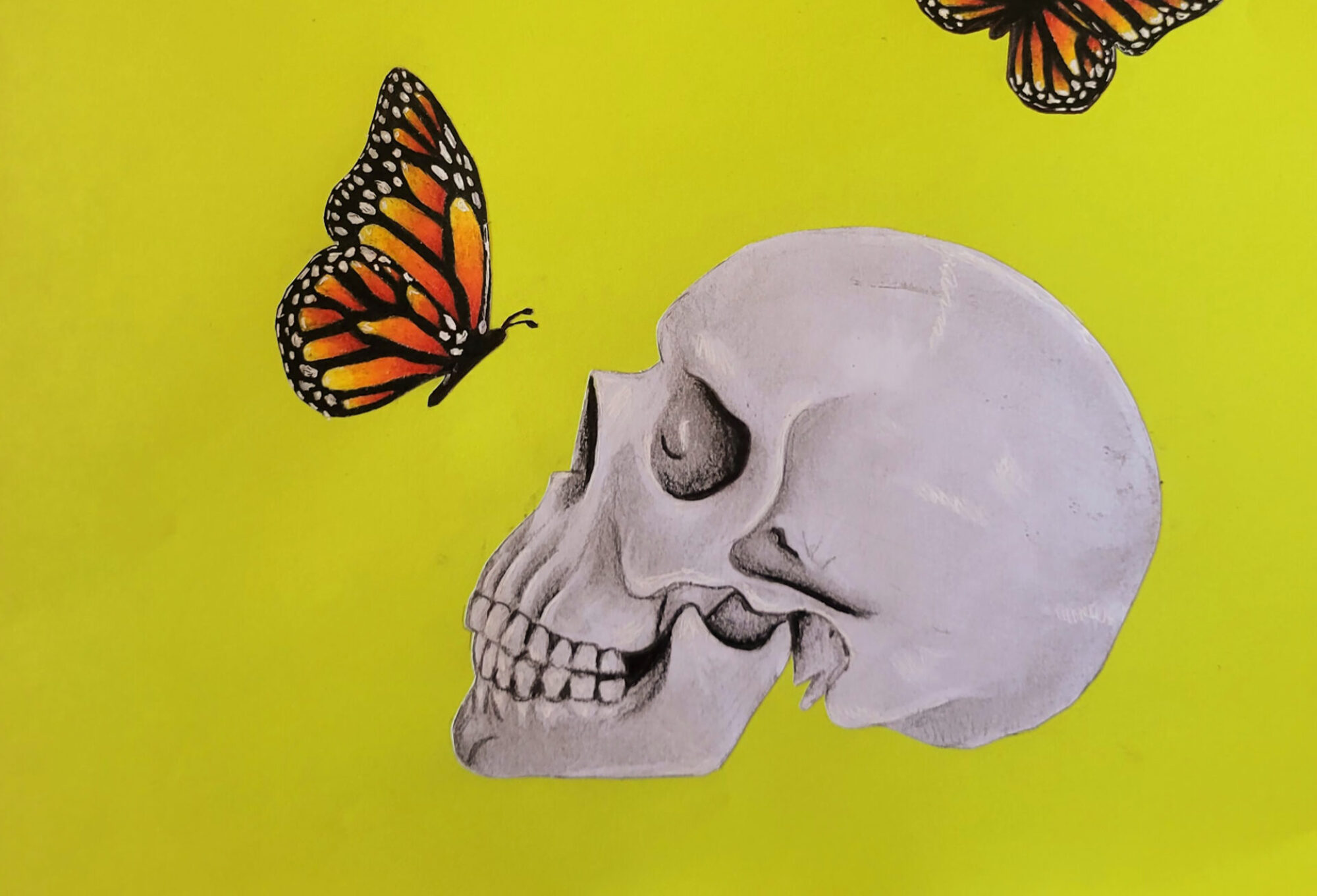Daddy was a preacher,
stern and full of fire,
paranoid of sinners,
adulterers, and liars.
He left when I was five,
Mama nursing little Tommy,
When she cried, I asked her why. She’d say:
“Not for him, but– why, God, me?”
It was hard for Mama, taking care of us,
in a drafty, falling-down home;
the rent was cheap, but nights were cold,
so we never slept alone.
Mama took in sewing.
We raised chickens, selling eggs.
She started working at a bookshop–
no more Bibles, blood and plagues.
The sewing room was vacant,
cleaned and rented out
to the widow, Ginny Meadows,
our new Grandma, just about.
Ms. Ginny made us cookies,
and we learned to help her bake,
We all became a family,
happy, happy, give or take.
That’s the year that Mama
first got sick with cancer.
How to live? was the question,
but only death gave an answer.
Ms. Ginny fretted fiercely
‘bout losing us and home.
State notified our Daddy,
our family’s carcinome.
He came back with a vengeance,
crystallized our grief.
He sent away Ms. Ginny,
as if she were a thief.
He preached about our wickedness,
tried to toughen Tommy up.
He called me names, like Jezebel–
at seventeen, he locked me up.
I’d never even kissed a boy,
but Daddy didn’t care.
He thought all women evil
and wouldn’t chance it on a dare.
The first night he mistook me
for his wife would be my last.
I fought him hard and wished him dead,
which made him damn me fast.
His fists flew with a fury,
bludgeoning my head.
He beat me to the ground,
until I lay there, dead.
“Twas an accident!” he swore;
and the coppers did believe him.
Left Tommy with him there,
to mourn and sing my funeral hymn.
And now I’m trapped, forever,
inside this house of sadness.
Doomed to haunt my dear old Dad,
who lives inside his madness.
“Who’s there?” he’ll say,
as I moan, drifting in the room.
“Tis I,” I cry, in whisper tones,
to drive him to his tomb.
“Let him live in shame,” says Mama,
“tortured by his past.”
“Yes,” I agree, “He’s doomed to live,
in torment, sure to last.”
We roam the house in frightful form,
at night, disturbing sleep;
while Tommy is our precious hope
for life we aim to keep.
We breathe our frigid air at Dad,
watching as he shivers.
Mama flips a crucifix–
religious fear delivers.
Daddy pales and prays to God,
but Mama? She just laughs.
“I hope you die in fiery Hell!”
while I rattle photographs.
Daddy has begun to drink
and Mama’s proud of us
for making life unbearable
for that awful blunderbuss.
Poor Tommy has the worst of it–
left in chaos, amid clamour.
We try to give him comfort,
in our cold, unearthly manner.
He seems all right when he’s asleep,
his worry lines relaxing,
but I worry for his sanity,
in this house that keeps collapsing.
Tommy keeps his head down
and listens to the songs
that Mama always sings to him,
trying to right the wrongs.
Still, Mama tries to push him
to grievous acts of harm,
telling Tommy Dad deserves it,
for all whom he’s strong-armed.
I wish she wouldn’t do that,
but I cannot blame her, truly;
since Daddy is a bastard,
slowly killing him’s our duty.
—
Michele Cacano is a neurodiverse writer, artist, and massage therapist born and raised in Harford County, MD, now settled in Seattle, WA. Her poetry is informed by a love of place, travel, history, words, and language. She is the organizer of the Seattle Writers Meetup, a weekly critique and support group est. 2007, and a founding member of Camp S’more Writers. Her work has been published in anthologies from Bag of Bones Press, Mind’s Eye Publishing, Firbolg Publishing, Thirteen O’Clock Press, as well as magazines such as Penumbra and Haunted Waters Press. She can be found on Chill Subs, Twitter, and Instagram @MicheleCacano, and @SeaWritersMeet.
